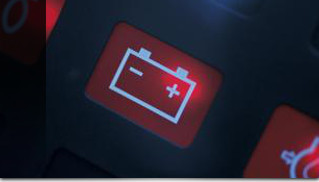 When car batteries are new, they don’t complain much and just do their job. But when they get old, they can crank a vehicle’s engine too slow to start a car. And, just about every driver has a horror story about this being discovered late at night and/or long ways from home. A natural question is: “When should my car’s battery be replaced so it doesn’t let me down?” A rough rule of thumb according to amesford.com is that a car battery lasts about four, maybe five, years, under normal conditions.
When car batteries are new, they don’t complain much and just do their job. But when they get old, they can crank a vehicle’s engine too slow to start a car. And, just about every driver has a horror story about this being discovered late at night and/or long ways from home. A natural question is: “When should my car’s battery be replaced so it doesn’t let me down?” A rough rule of thumb according to amesford.com is that a car battery lasts about four, maybe five, years, under normal conditions.
Normal conditions?
“Normal conditions” refers to a number of factors that exist somewhat in theory. Normal in this case means the battery goes through full charge cycles, isn’t subjected to extreme temperatures, is attached to a properly functioning charging system, and isn’t providing power for a ton of accessories. In the real world, temperature extremes, vehicle vibration, and short trips can take a toll on a battery’s lifespan.
If you look at a typical lead-acid car battery, it’s easy to make sense of why these factors affect it. Inside the plastic battery box are a series of heavy lead plates arranged in a comb like pattern. These plates are suspended in a mix of water and sulfuric acid. Batteries are built to be strong but there are factors that can disturb the internal structure. For example, vibrations from rough travel can shake loose or weaken the plates. Extreme heat during the summer can speed up the chemical reaction inside a battery which can shorten its life too. If you have a short commute or take lots of brief trips, this can actually damage your battery too. Why? the battery never gets fully charged and this constant state of undercharge results in “acid stratification” which shortens the batteries life.
Symptoms that the end may be near
The most obvious sign of a battery that is nearing the end is that when fully charged, say after a long trip, that it cranks the engine slowly and not for very long. However, other things may cause this symptom. Because the battery is part of the larger charging system, slow cranking may indicate a deeper problem. If something else is wrong in the electrical system, say, a weak alternator (the device that charges your battery), then your battery may never get a decent charge. The result of this is the same symptom as an old battery: weak cranking power. If you suspect this is might be the problem, a good mechanic can help check this for you by measuring the voltage your alternator puts out.
Conclusion:
Batteries are so reliable and so simple that drivers have a tendency to forget they’re even there until it’s too late. If you pay attention to the age of your car’s battery, you’ll reduce your risk of being stranded on the road. Start to think about replacement when it gets to be some four to five years old. All things considered, though, batteries are relatively inexpensive, considering the amount of work they perform on a regular basis. When in doubt, it often makes sense to just get a new one. Then you are assured of full cranking power for years to come.
Source:Ames Ford